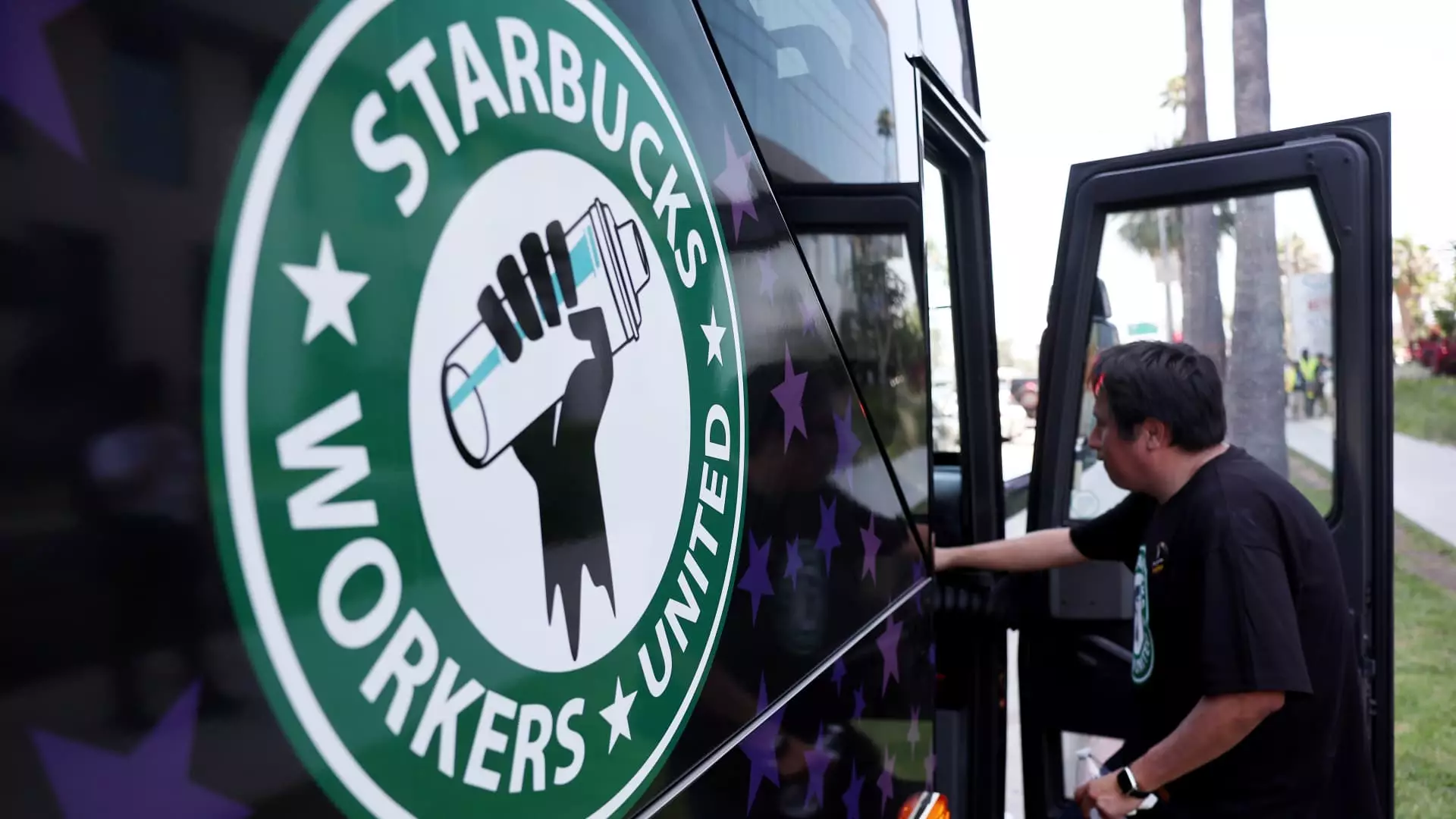On Tuesday, Starbucks Workers United announced a significant turning point in their ongoing struggle for better contract negotiations with Starbucks: an astounding 98% of union baristas voted in favor of authorizing a strike. This decisive action indicates a growing frustration among workers who have tirelessly advocated for better wages, working conditions, and comprehensive benefits from the coffee giant. Bargaining delegates are preparing to return to the negotiation table for their last planned meeting of the year, with hopes of establishing a foundational framework that could guide future discussions.
Negotiations: A Fragile Dynamic
Despite hundreds of hours spent at the bargaining table throughout the year, progress appears to be stagnant. The union disclosed that countless unfair labor practice cases remain unresolved, and Starbucks has yet to present a comprehensive contract proposal addressing critical issues like employee compensation. In response, Starbucks has claimed that negotiations have been productive, asserting that they have engaged in extensive discussions on various significant topics since April. However, the stark discrepancy between the union’s affirmation of the negotiations and Starbucks’ view casts a shadow on the overall effectiveness of their dialogue.
The recent strike authorization signals a downturn in relations, reminiscent of the heated confrontations from two years ago when Starbucks vehemently opposed the sudden wave of unionization sweeping through its locations. While negotiations had progressed positively earlier this year, the latest developments suggest that the optimism is faltering. Starbucks has faced mounting pressure from consumers and lawmakers alike as dissent over its anti-union tactics grows. The situation escalated to the point where former CEO Howard Schultz found himself testifying in front of Congress regarding the company’s labor practices.
New CEO Brian Niccol, who assumed leadership in September, has publicly expressed his commitment to fostering constructive negotiations in his initial communications. Recent initiatives, such as a plan to double paid parental leave beginning in March, indicate a potential shift in focus. However, the financial realities facing the company, including a reported sales slump and a proposed reduction in annual pay increases for baristas, suggest that any advancements may not resonate with employees struggling to see tangible improvements.
Over the past three years, more than 500 company-owned Starbucks locations have voted to unionize through Workers United, highlighting a significant labor movement within one of the world’s most recognized coffee brands. As the impending negotiations loom, the workers’ determination to secure a fair contract manifests not only as a fight for better pay but represents a broader call for labor rights in the current economic climate. With the strike authorization in place, the stage is set for a defining moment in the labor landscape at Starbucks, and the outcome will be closely watched not just by employees, but by industries across the nation.
As both sides prepare to engage once more at the negotiation table, the resolution remains uncertain. The stakes continue to rise, and the eyes of the business community and labor activists alike are focused on the outcomes of these critical discussions.

